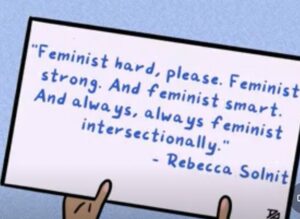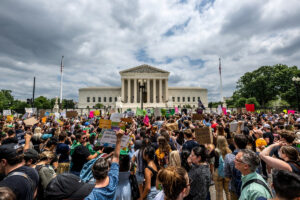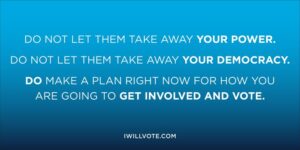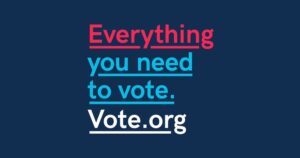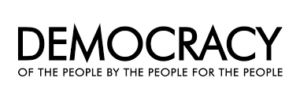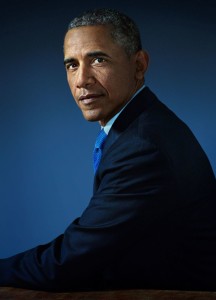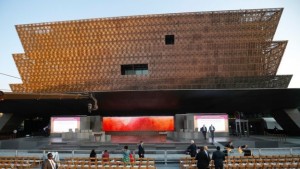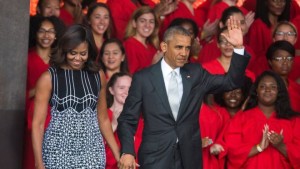President Obama
“Today’s Supreme Court decision is wrong.”
June 24, 2022“With sorrow — for this Court, but more, for the many millions of American women who have today lost a fundamental constitutional protection — we dissent.”
-Justices Breyer, Sotomayor, and Kagan
❧
Progress isn’t always a straight line.
Today’s Supreme Court decision is wrong
but Congress passing the Bipartisan Safer Communities Act is a modest but real step forward. And the fight will go on, thanks to the activists, survivors, and families who continue to demand action.
Today, the Supreme Court not only reversed nearly 50 years of precedent, it relegated the most intensely personal decision someone can make to the whims of politicians and ideologues—attacking the essential freedoms of millions of Americans.
-President Barack Obama
♡ ‘Culture of Care’ @AnaMariaforNY
Timeline: America’s Long Civil Rights March
By Nikole Hannah-Jones and Al Shaw, ProPublica
[2013]
Ever since the War of the States, Congress and the Supreme Court have clashed over the question of civil rights. When considering the recent rulings on affirmative action, the Voting Rights Act and the Defense of Marriage Act, it is useful to take the long view of the push and pull between Congress and the Supreme Court when it comes to civil rights. The long arc of history might bend toward justice, but there’s always been a lot of pendulum swinging along the way.
https://projects.propublica.org/graphics/vra
GALLUP
WASHINGTON, D.C. — With the U.S. Supreme Court expected to overturn the 1973 Roe v. Wade decision before the end of its 2021-2022 term, Americans’ confidence in the court has dropped sharply over the past year and reached a new low in Gallup’s nearly 50-year trend. Twenty-five percent of U.S. adults say they have “a great deal” or “quite a lot” of confidence in the U.S. Supreme Court, down from 36% a year ago and five percentage points lower than the previous low recorded in 2014.
Abortion is a fundamental right for all women. It must be protected. I wish to express my solidarity with the women whose liberties are being undermined by the Supreme Court of the United States.
-French President Emmanuel Macron
P
E
A
C
E
Non-violence.
K
I
N
D
The Kindness Bonus
Seth Godin
“Please be kind” sounds like a moral imperative. And in some ways, it is.
But behind the theory of the firm and a key building block of successful communities is the idea that kind interactions are significantly more productive.
When people feel seen and respected, they’re more likely to focus on what needs to be done, instead of taking umbrage or being defensive.
When we leave opportunities and pathways for others, they can move forward with less friction.
And when we’re enjoying our days, we’ve created a posture that spreads.
Hockey games aren’t supposed to be kind. But just about everything else works better when we don’t throw elbows.
“CARE is the antidote to violence.”
– Saidiya Hartman
From Jon Meacham’s podcast today, June 24th, 2022
On June 24th, 1990, The Catholic Church discusses excommunicating politicians who disagree with the church on abortion rights.
Important listen for history, and in this moment.
Reflections of History
From former Governor Mario Cuomo in 1984, at Notre Dame:
“I speak here as a politician and also as a Catholic, raised as a Catholic, pre-Vatican II church, educated in Catholic schools, attached to the church first by birth and then by choice, now by love. […] The Catholic church is my spiritual home. My heart is there. And my hope. The Catholic who holds political office in a pluralistic democracy, who was elected to serve Jews and Muslims, atheists, and protestants, as well as Catholics, bear special responsibility. He or she undertakes to help to create conditions under which all can live with a maximum of dignity and with a reasonable degree of freedom. Where everyone who chooses can hold beliefs different from specifically Catholic ones, sometimes contradictory to them, with laws that protect people’s rights to divorce, use birth control, and even to choose abortion. I protect my right to be a Catholic by preserving your right to believe as a Jew, a protestant, or non-believer, or anything else you choose. I accept the church’s teaching on abortion, must I insist you do, by law? By denying you Medicaid funding, by a Constitutional amendment? If so, which one? Would that be the best way to avoid abortions, or prevent them? […] We should understand whether abortion is outlawed or not, our work has barely begun. The work of creating a society where the right to life doesn’t end at the moment of birth. Where an infant isn’t helped into a world that doesn’t care if it’s fed properly, housed decently, educated adequately.”
“Search for the means of grace, and the hope of glory.” -Jon Meacham
S A N C T U A R Y
California Governor Gavin Newsom:
Abortion is legal in California.
It will remain that way.
I just signed a bill that makes our state a safe haven for women across the nation.
We will not cooperate with any states that attempt to prosecute women or doctors for receiving or providing reproductive care.
—
Canadian Prime Minister Justin Trudeau
The news coming out of the United States is horrific. My heart goes out to the millions of American women who are now set to lose their legal right to an abortion. I can’t imagine the fear and anger you are feeling right now.
—
Signal App post today on twitter:
@signalapp
Here is your friendly reminder that we built Signal for private, secure communication. It’s built so you can communicate individually and in groups, through text and calls, without fear of interference or data collection. Free to use and not for profit.
#protectwomen ♀
‘Greatest office in democracy? Citizen.’
January 12, 2017︶⁀°• •° ⁀︶
Democracy is the most fragile thing on earth, for what does it rest upon? You and me, and the fact that we agree to maintain it. The moment either of us says we will not, that’s the end of it. It doesn’t rest on anything but us; it doesn’t rest on armed force, the moment it does it isn’t democracy. It isn’t something to kick around or experiment with.
-Allen Drury, Stanford University
[age 19]
‘People are complicated…it’s messy.’
November 18, 2016THE NEW YORKER
Obama Reckons With a Trump Presidency
by David Redneck
Inside a stunned White House, the President considers his legacy and America’s future
How did he speak with his two daughters about the election results, about the post-election reports of racial incidents? “What I say to them is that people are complicated,” Obama told me. “Societies and cultures are really complicated. . . . This is not mathematics; this is biology and chemistry. These are living organisms, and it’s messy. And your job as a citizen and as a decent human being is to constantly affirm and lift up and fight for treating people with kindness and respect and understanding. And you should anticipate that at any given moment there’s going to be flare-ups of bigotry that you may have to confront, or may be inside you and you have to vanquish. And it doesn’t stop. . . . You don’t get into a fetal position about it. You don’t start worrying about apocalypse. You say, O.K., where are the places where I can push to keep it moving forward.”
[…]
There is no denying the depths of Obama’s humbling. He fully grasps the nature of the bigotry and the nihilism that Trump has espoused in the name of working-class empowerment. Obama’s way is to keep cool while insisting on, and embodying, a faith in institutions.
[…]
In the new media universe:
I have complete confidence in the American people—that if I can have a conversation with them they’ll choose what’s right. At an emotional level, they want to do the right thing if they have the information.” And yet in an age of filter bubbles and social-media silos, he knew, the “information” that reached people was increasingly shaped by what they wanted to be true. And that was no longer in his hands or anyone else’s.
[…]
Those closest to Obama at the White House say that he copes by quietly, sarcastically deflating the attacks—like letting the air out of a balloon slowly, one said, the better not to make too much noise. He never loses his capacity to be the scholar of his own predicament, a gently quizzical ethnographer of his own country, of its best and worst qualities. In private, Michelle Obama gives clearer voice to the frustrations, and, not least, to a concern about the racism that is apparent to them both. In public—in one of the most memorable speeches of the campaign—she spoke out ferociously against Trump’s misogyny.
[…]
Obama does not believe in the simplistic form of American exceptionalism which insists that Americans are more talented and virtuous than everyone else, that they are blessed by a patriotic God with a special mission. America is a country that was established on the ideas of Enlightenment philosophers and improved upon not merely by legislation but also by social movements: this, to Obama, is the real nature of its exceptionalism. Last year, at the fiftieth anniversary of the Selma-to-Montgomery march, he stood on the Edmund Pettus Bridge, in Selma, and defined American exceptionalism as embodied by its heroes, its freedom fighters: Sojourner Truth, Susan B. Anthony, John Lewis, the “gay Americans whose blood ran in the streets of San Francisco and New York”; its Tuskegee Airmen and Navajo code-talkers, its 9/11 volunteers and G.I.s, and its immigrants—Holocaust survivors, Lost Boys of Sudan, and the “hopeful strivers who cross the Rio Grande.”
[…]
Obama had no appetite for superseding the Twenty-second Amendment. “I said no, because, look, at some point you lose touch,” he recounted. “By being in this room. At some point, you get worn down. At some point, you start getting into bad habits. I told her, ‘We’re playing on house money here. We weren’t supposed to be here. For us to have had this opportunity and to be able to make this much change, as much as we wish that we could have gotten everything done, it’s remarkable.’ ”
[…]
Obama dismissed the notion that the Republicans had captured the issue of inequality. “The Republicans don’t care about that issue,” he said. “There’s no pretense that anything that they’re putting forward, any congressional proposals that are going to come forward, will reduce inequality. . . . What I do concern myself with, and the Democratic Party is going to have to concern itself with, is the fact that the confluence of globalization and technology is making the gap between rich and poor, the mismatch in power between capital and labor, greater all the time. And that’s true globally.
“The prescription that some offer, which is stop trade, reduce global integration, I don’t think is going to work,” he went on. “If that’s not going to work, then we’re going to have to redesign the social compact in some fairly fundamental ways over the next twenty years. And I know how to build a bridge to that new social compact. It begins with all the things we’ve talked about in the past—early-childhood education, continuous learning, job training, a basic social safety net, expanding the earned-income tax credit, investments in infrastructure—which, by definition, aren’t shipped overseas. All of those things accelerate growth, give you more of a runway. But at some point, when the problem is not just Uber but driverless Uber, when radiologists are losing their jobs to A.I., then we’re going to have to figure out how do we maintain a cohesive society and a cohesive democracy in which productivity and wealth generation are not automatically linked to how many hours you put in, where the links between production and distribution are broken, in some sense. Because I can sit in my office, do a bunch of stuff, send it out over the Internet, and suddenly I just made a couple of million bucks, and the person who’s looking after my kid while I’m doing that has no leverage to get paid more than ten bucks an hour.”
“I’ll be fifty-five when I leave”—he knocked on a wooden end table—“assuming that I get a couple more decades of good health, at least, then I think both Michelle and I are interested in creating platforms that train, empower, network, boost the next generation of leadership. And I think that, whatever shape my Presidential center takes, I’m less interested in a building and campaign posters and Michelle’s dresses, although I think it’s fair to say that Michelle’s dresses will be the biggest draw by a huge margin. But what we’ll be most interested in is programming that helps the next Michelle Obama or the next Barack Obama, who right now is sitting out there and has no idea how to make their ideals live, isn’t quite sure what to do—to give them resources and ways to think about social change.”
He seemed to be returning to the days when he was a community organizer in the Atgeld Gardens housing project, on the South Side of Chicago. “The thing that I have always been convinced of,” he said, “the running thread through my career, has been this notion that when ordinary people get engaged, pay attention, learn about the forces that affect their lives and are able to join up with others, good stuff happens.”
[…]
American instinct has never been to find isolation in opposite corners. It is to find strength in our common creed, to forge unity from our great diversity, to sustain that strength and unity even when it is hard.
“It’s the example of the single most diverse institution in our country—soldiers, sailors, airmen, marines, and coastguardsmen who represent every corner of our country, every shade of humanity, immigrant and native-born, Christian, Muslim, Jew, and nonbeliever alike, all forged into common service.” His sober cadences gave resonance to words that could have been rote. So did the awareness that just seventy days remained of his Presidency.
[Full article: http://www.newyorker.com/magazine/2016/11/28/obama-reckons-with-a-trump-presidency]
This day.
September 24, 2016The Smithsonian National Museum of African-American History and Culture opens today in Washington DC.
“Speaking on Friday, Mr Obama said the new museum would educate Americans about the history of the racial tensions seen during protests over police killings of black men.
“As a people, we’ve rightfully passed on the tales of the giants who built this country,” Mr Obama said during his weekly address to the American people.
“But too often, wilful or not, we’ve chosen to gloss over or ignore entirely the experience of millions upon millions of others.” He added: “And so it is entirely fitting that we tell this story on our National Mall, the same place we tell the stories of [President George] Washington and [President Thomas] Jefferson and our independence.”
The bronze-coloured museum, designed by British architect David Adjaye, is located on Washington’s National Mall – not far from the White House.
It contains 36,000 items, ranging from trade goods used to buy slaves in Africa to a segregated railway car from the 1920s and a red Cadillac convertible belonging to rock’n’roll pioneer Chuck Berry.
Black veterans of the US Civil War first proposed an African-American museum in 1915.
However, it was not until 2003 that Congress approved its creation. Construction of the 37,200 sq m building took almost four years.”
BBC NEWS
President Obama’s letter to the editor…
August 12, 2015His letter is in response from a New York Times Magazine cover story on the efforts that have been made over the last 50 years to dismantle protections in the Voting Rights Act of 1965…
